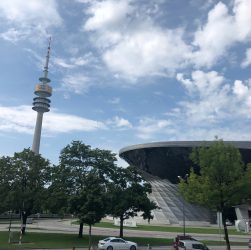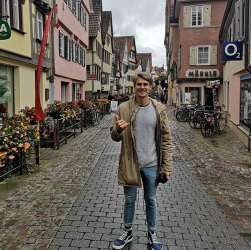Leaving on a Jet Plane Pre-Departure It’s happening! I’ve submitted my application to the international office at Stellenbosch University and …


Leaving on a Jet Plane Pre-Departure It’s happening! I’ve submitted my application to the international office at Stellenbosch University and …

Predeparture My Time at TU, Munich I applied for my Visa about 4-6 weeks before my departure date. I applied …

Pre-departure: Here you should focus on your preparations for your trip abroad. It should include information about the visa application, …